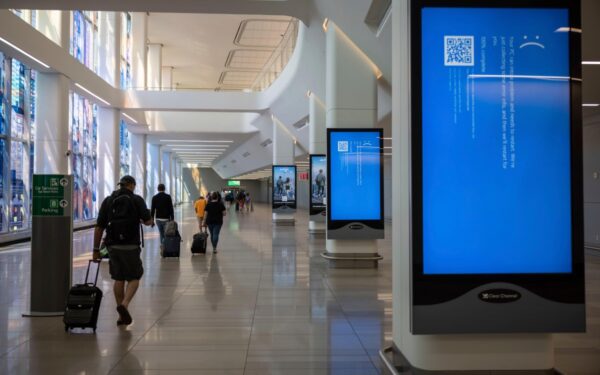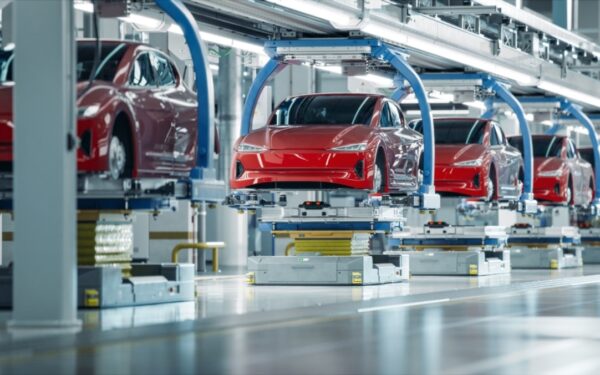One of the few things that has stuck in my mind from my history lessons as a youngster is that in medieval England there were three axes of power – the crown, the church and the barons.
I used to look at modern Britain and argue that the three axes of power were now the state, the large corporations and the media. Of course, there is a lot of crossover between the three, but you get the general point. However, this is now being knocked out of place by the internet and the new tech giants. I’m talking about the likes of Google, Amazon, Facebook, Uber, AirBnB, Apple and so on.
From a superficial point of view, these forces are liberalising and empowering. No longer do you have to be one of the BBC’s chosen few if you want to be on telly, you can have your own YouTube channel. Thanks to Amazon, you don’t have to persuade some gatekeeper in an office if you want to publish a book, you can self-publish and let the market decide if it is any good or not. Instead of having to land a job in a newspaper, you can start a blog and have total autonomy. Bucket-loads of opportunities, which didn’t previously exist, have been created.
But there is a darker side, of course: companies went bust, many lost their jobs and it’s hard to earn a living as a “content-producer”. Indeed, the value of content has been undermined. Most now expect to enjoy it for free.
One of the hopes for new internet cash systems such as bitcoin is that this will change. We shall see. I’m not holding my breath.
Amazon has put shops and publishers out of business. I feel sorry when I hear that traditional retail is struggling. I’m told that my own books would have made more money if Amazon didn’t exist. But as a customer I use Amazon all the time. I think it’s great. I make my search, I read the product description and the customer reviews, I make my choice and pretty much whatever I want is delivered to my door the next day, or even sooner.
As a customer, I love Uber and I use it all the time. In fact, I now don’t own a car because of Uber. It’s brought the consumer a superior taxi service at a cheaper price. On the whole, drivers seem to prefer it too. But it’s put local cab firms out of the business.
I co-wrote a film that has had nearly 5m hits on YouTube. One of my videos garnered nearly a million. The money we’ve made (hardly any) in no way justifies the time, effort and expense. Yet I still use Google, gmail and YouTube all the time and I think they’re brilliant.
Google and Facebook ads have killed the local classified ad and the sweet shop window. AirBnB has hurt the hotel trade. TripAdvisor has turned the travel industry on its head. Netflix has unsettled broadcasters. The list goes on. It makes me feel sad for the losers in all of this, yet I use these companies all the time.
The dynamic is that some new digital company comes along, changes an existing way of doing something, brings loads of new entrants to a marketplace, the new entrants love it and the old players are disrupted. This new wave is creating many opportunities, but in terms of the global power structure something is changing.
But the local minicab’s profits were once all kept locally. Now a substantial share is going to Uber in Silicon Valley. The same goes for the ad revenue, the spare room you let out on AirBnB or the item you buy on Amazon – in the sharing economy the internet plutocrats are taking a cut of everything. This is a global phenomenon. Everywhere there is Google, Amazon, Uber, AirBnB – whichever it is – a share of local wealth and power is transferred to Silicon Valley.
You may now have your own YouTube channel or blog. You are your own boss. You can flick two fingers at the television channel who turned you down, or the editor who censored you. But you now have a feudal overlord to whom you must pay your tithe, and his name is Google.
These companies have dramatically improved the quality of people’s lives, for sure. But the reward for the service they are giving you is increased wealth and power for them, quite breath-taking amounts when measured on a global scale.
Perhaps the internet plutarchs will fall victim to their own model and quickly be disrupted, just as they disrupted others. Only time will answer that one. It maybe that these giants will reign for many generations – by virtue of the their own enterprise but also by virtue of the fact that they were in the right place at the right time – establishing themselves, just as this new medium was taking off.
But the old axis of the state – which has overspent and is now under pressure to shrink – the corporations and the media is ceding power to the Internet Plutocracy. When the next wave of technological change comes – virtual reality, blockchain tech, robots, artificial intelligence, driverless cars and all the rest of it – that cession of power is only going to quicken.
Dominic Frisby will be performing his show, Let’s Talk About Tax, at the Edinburgh Festival this August.
This piece originally appeared at MoneyWeek.com



